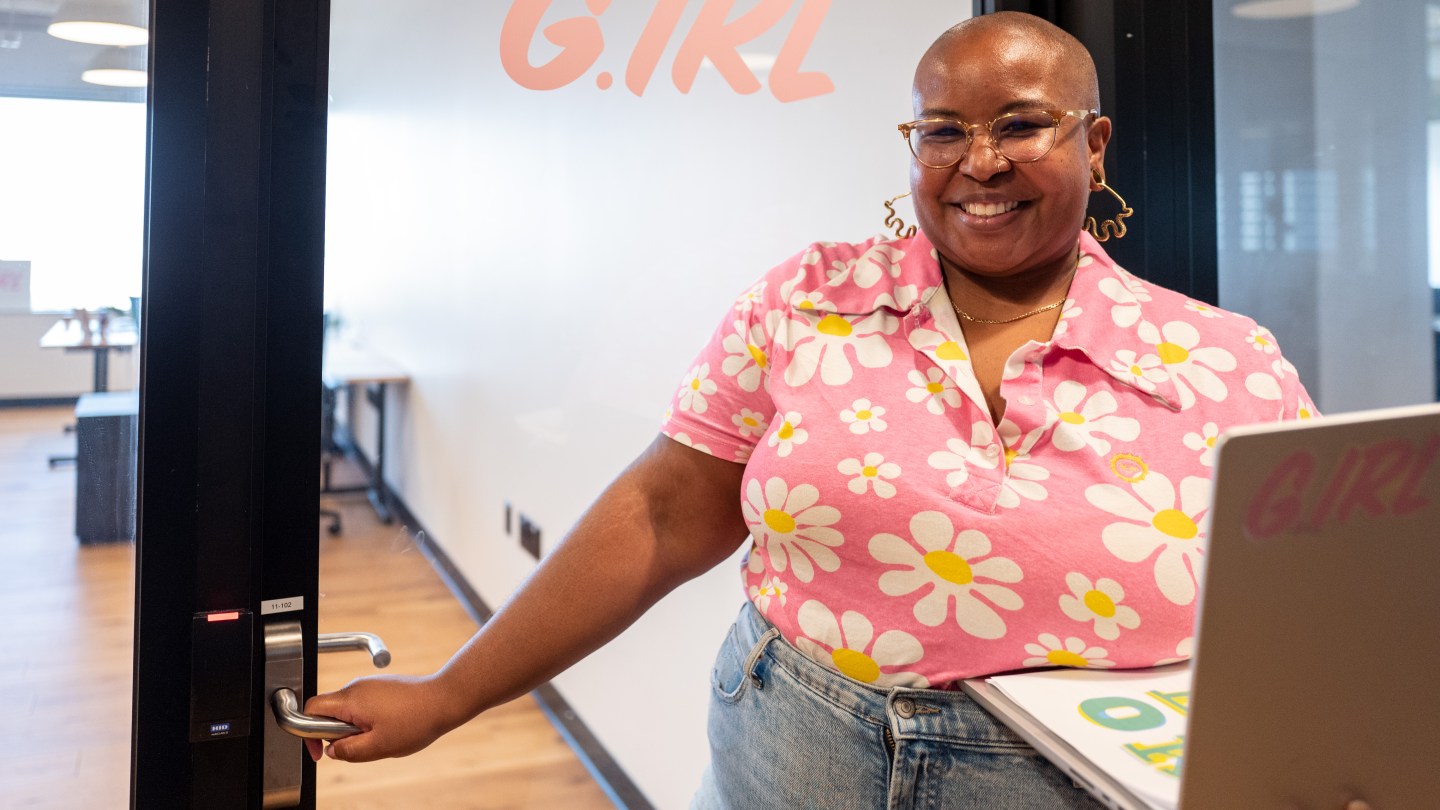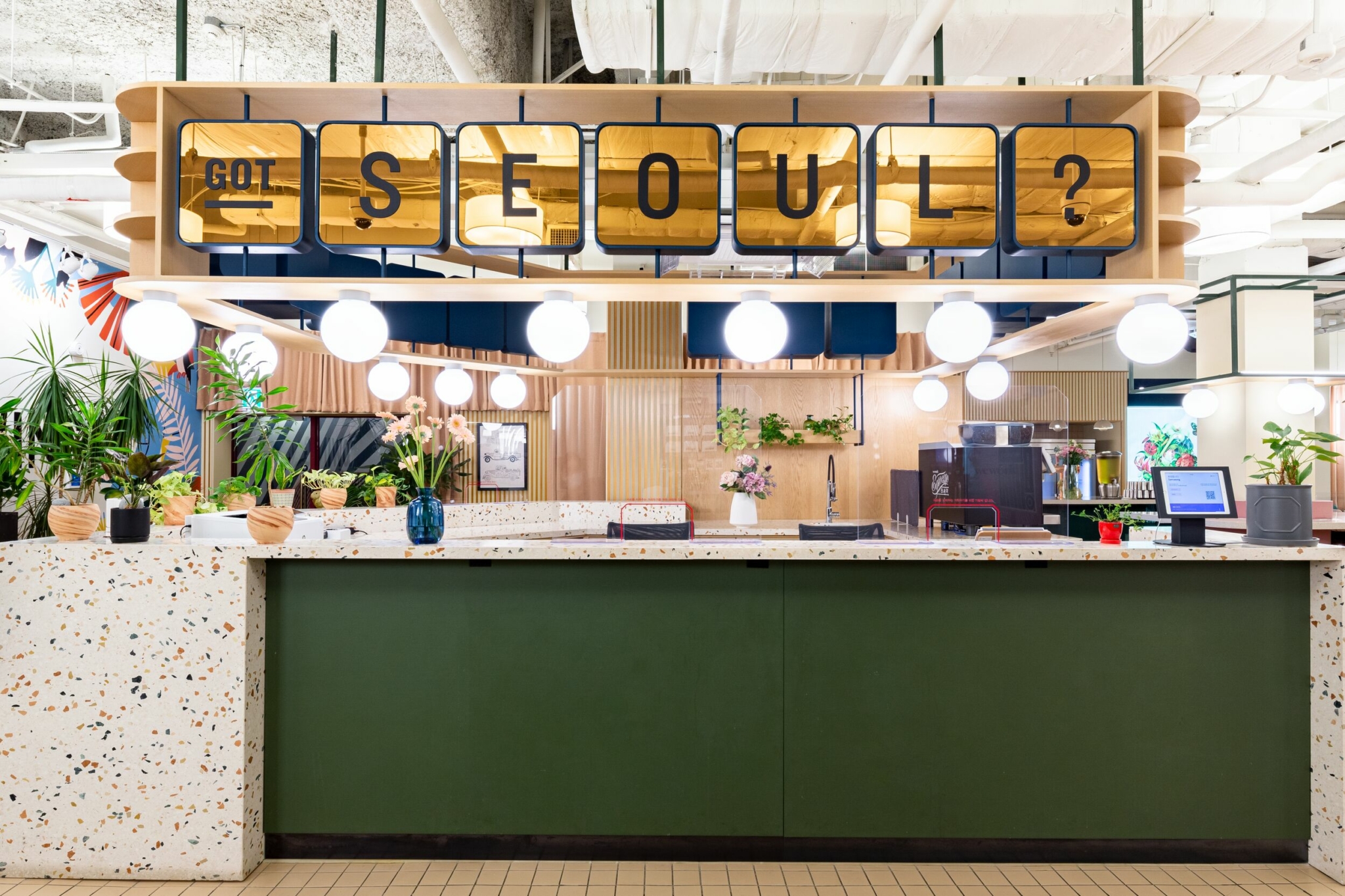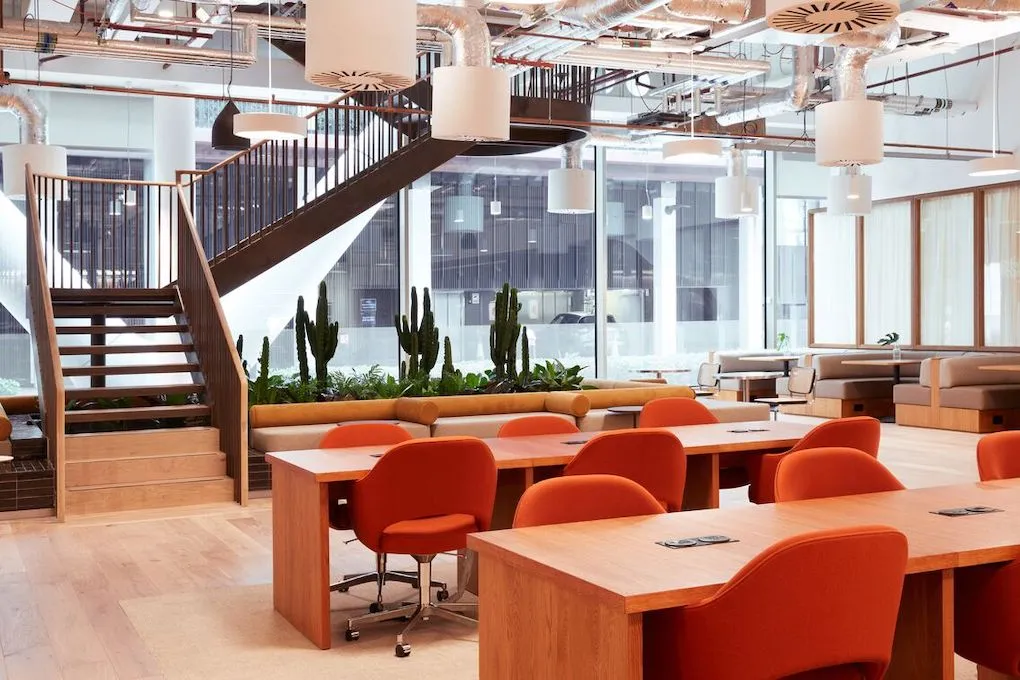The ways we work have fundamentally changed. People no longer seek just work-life balance. They want the power to choose when, where, and how they work. They want the freedom to create their own schedules, to do work they find meaningful, and to be in a space that suits their unique needs. Gone are the days of a one-size-fits-all nine to five. In All the Ways You Work, WeWork members share how they’re reimagining their professional lives and thriving in this new world of work.
Compton Girls Club (G.IRL), a nonprofit organization based out of WeWork 222 Pacific Coast Hwy in Los Angeles, is in many ways the embodiment of WeWork values. The club, founded by Chrystani Heinrich in 2017, illustrates how the presence of a caring, interdependent community can profoundly alter the course of young people’s lives.
Before starting Compton Girls Club, Heinrich’s career as a high school librarian wasn’t fulfilling—but it served as inspiration for her next step. “I found myself through what I did for the students. I saw what the girls were and weren’t learning. They didn’t know how to send an email,” she says.
For Heinrich, this lack of preparation hit close to home. She grew up in Compton, California, and after graduating from high school, she had to get a job. “I wasn’t equipped for college. I didn’t know what to do once I got there. Nobody prepped me for it. I didn’t get what I needed in high school,” she says.
Determined to give area teens the advantages and support she didn’t have, she founded Compton Girls Club, creating community, mentorship, and programming for girls and gender-nonconforming teens from Black and brown communities in South L.A.
Reaching teens where they live
Many teens involved in Compton Girls Club have experienced childhood trauma and/or the trauma that comes from systemic racism and poverty. Compton Girls Club programs aim to break these cycles, teaching teens to discern what kind of help they need and to seek help from safe adults.
“In our community, there are a lot of foster kids who are in these systems of oppression. They’re not getting what they need,” Heinrich says. “They graduate high school, and the world is just like, ‘Figure it out.’ They’re not getting long-term skills. If we can start educating these girls when they’re in high school, we can intercept that cycle. We can say to teens, ‘OK, here’s how to take care of yourself.'”
For teens who want access to Compton Girls Club programming, money is never a barrier—they can participate without any expectation of payment or demands placed on parents. This past summer, Compton Girls Club was among the 10 winners of WeWork’s Small Business Week contest, in which each winner received a WeWork private office for six months. Programs are held at the Yetunde Price Resource Center, a nonprofit community center funded by fellow Compton native Serena Williams.
Sometimes people just need grace.
Chrystani Heinrich, founder of Compton Girls Club (G.IRL)
“The kids in our program get the experiences they wouldn’t get otherwise,” Heinrich says. “We remove barriers like transportation. We feed everyone. Say there’s a workshop on a Saturday, and we’re going to Hollywood to visit a museum. If a mom is not going to be able to get her kids out there, we make sure her kids have a code for an Uber and that they get lunch.”
The board of Compton Girls Club is comprised of Black and brown women and gender-nonconforming people, which is another signal to the community that the organization represents them. “We look like our target audience. Kids look at me and say, ‘Oh, she looks like me,’ or ‘Oh, she’s from the community I’m from,’” Heinrich says.
Innovating beyond existing systems
Compton Girls Club serves as a case study for how entrepreneurs and innovators can create privately funded, independently-run models that provide services to underprivileged communities. The group is able to offer a vision of help that traditional nonprofits and government agencies are either unwilling or unable to provide.

Heinrich shared a story about how Compton Girls Club managed to help a teen in a situation where traditional assistance could have contributed to more trauma. A high school club member was pregnant with twins and living in her car with her boyfriend. Had this teen gone to a traditional government agency, it’s likely that the state would have arranged for the babies to be placed in foster care immediately after birth. Instead, the Compton Girls Club board helped find housing for the pregnant teen and her boyfriend—and even threw her a baby shower. “Sometimes people just need grace,” says Heinrich.
Heinrich hopes that she is modeling for teens that it’s good to ask for help. “I hope the teens know they can reach out for help whenever they need it. They tell us, ‘I need a new experience,’ ‘I want to learn something,’ or ‘I don’t know how to do this thing,’ and we follow through and meet that need,” she says.
This year is Compton Girls Club’s fifth anniversary, and Heinrich is planning on expansion. “We want to reach more girls and eventually have a nationwide staff. Right now, it’s just me and my board. But we have big dreams,” she says.
Liz Winston is a writer in New York City who covers entrepreneurship, women’s issues, and social justice. When she is not writing or interviewing entrepreneurs, she is in the earliest stages of founding a quirky women’s apparel company.
Want to learn more about flexible work?













